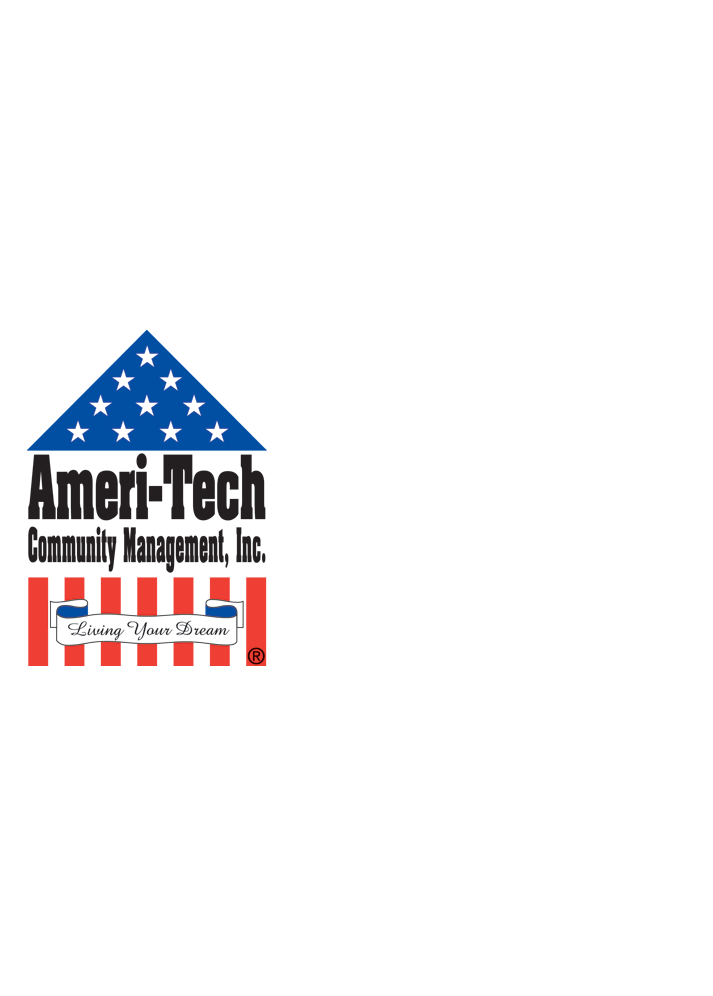The Essentials of Serving on a Florida HOA or Condominium Board
Serving on a homeowners’ association (HOA) or Condominium board in Florida is both a privilege and a responsibility. Board members are elected volunteers who must balance community needs, legal obligations, financial stewardship, and resident expectations. Understanding the role clearly is essential for effective leadership and maintaining property values, compliance, and community harmony.
Ameri-Tech Community Management helps board members manage these responsibilities by working in partnership with the entire board of directors at each community. Our approach is tailored to the needs of each board and each community.
Legal Requirements for Florida Board Members
Before taking on a board position, prospective members must meet several statutory requirements:
| Requirement | What It Means |
| Age | Must be 18 years or older. |
| Membership | Must own property in the association; delinquent members (in terms of fees/fines) are generally barred. |
| Background / Felony Status | Individuals convicted of a felony are disqualified unless their civil rights have been restored for at least five years. |
| Certification / Education | As of July 1, 2024, newly elected or appointed board members must complete a state‑approved certification course within 90 days. Previous alternatives (such as simply reading governing documents) are no longer valid. |
| Continuing Education | State approved on-going board education is required annually. For Condominium boards, there is a one-hour legal requirement to be completed. For HOA boards, there is a four-hour annual on-going education requirement for boards with fewer than 2,500 parcels. HOA boards who serve associations with 2,500 parcels or more must complete eight hours of ongoing education annually. |
Core Duties & Responsibilities
Meeting the legal qualifications is necessary—but not sufficient. Board members must also fulfill a number of operational, managerial, and ethical responsibilities. Based on the insights from both sources, here are the key areas of duty:
- Financial Stewardship
- Drafting, reviewing, and approving annual budgets that account for operating costs, reserves, and long‑term capital needs.
- Collecting assessments and ensuring that revenues cover expenses.
- Monitoring costs of insurance, maintenance, vendor contracts, and inflation.
- Compliance and Legal Governance
- Ensuring activities align with Florida Statutes, especially Chapter 720 (for HOAs) and Chapter 718 (for Condominiums).
- Maintaining accurate records, properly documented meetings, notice and meeting requirements, enforcing community rules fairly.
- Maintenance & Common Area Oversight
- Overseeing repair, maintenance, and improvement of common areas and amenities (landscaping, lighting, pools, etc.).
- Planning for capital expenditures and setting aside reserves.
- Rules, Regulation Enforcement, and Community Standards
- Enforcing covenants, rules, architectural guidelines (via committees like Architectural Review Committee).
- Handling noncompliance and fining through due process (fines/compliance committees).
- Transparent Communication & Engagement
- Keeping homeowners informed via regular meetings, newsletters, digital portals or publications.
- Ensuring homeowners have access to governing documents and are aware of how decisions are made.
- Continuous Education
- Beyond the initial certification, board members in Florida are expected to stay up to date through continuing education. This helps them understand evolving laws, financial complexities, risk (insurance, liability), and governance best practices.
Why the Role Is Unique & Challenging
- Voluntary & Unpaid: Board members are typically not paid. Many are balancing board duties with full‑time jobs, personal commitments.
- Personal Investment: Because board members live in the community themselves, the issues they deal with—rules, budgets, maintenance—directly affect their homes and quality of life.
- Diverse Stakeholders with Differing Priorities: Homeowners have different goals, concerns, resources. Achieving consensus can be difficult, especially when costs, aesthetics, or regulations are involved.
Best Practices for Success
To meet these requirements well, boards should adopt the following practices:
- Onboarding Process: Clearly orient new board members. Provide necessary documents (governing documents, financial reports, meeting schedules). Education (including mandatory certification) should be part of onboarding.
- Regular Training: Encourage all members, even experienced ones, to attend workshops or certification courses, especially as laws change.
- Strong Communication Protocols: Hold regular, transparent meetings. Use newsletters or digital tools for updates. Make governing documents and financial reports accessible.
- Proper Committees: Use committees (e.g. finance, architectural review, compliance) to distribute workload and ensure specialized oversight.
- Legal & Risk Management Support: Engage with association attorneys, insurance professionals, auditors as needed. Stay current on statutory changes and court decisions.
Conclusion
Board membership in a Florida HOA or Condominium association is a serious commitment with important statutory, financial, and ethical dimensions. By meeting the legal requirements, fulfilling core duties with care, engaging with homeowners transparently, and investing in education and governance best practices, board members can help maintain property values, improve resident satisfaction, and ensure their communities thrive.
If you’re considering running for a board, recently elected, or serving already, making sure you’re clear on both your responsibilities and the legal obligations is essential—not just for your community’s well‑being, but for your own peace of mind.
If you would like to discuss this article, have any questions, or just need more information, please call Ameri-Tech Community Management at (727) 726-8000 and ask to speak to the Marketing Department.
